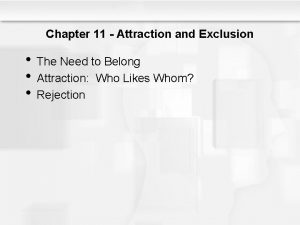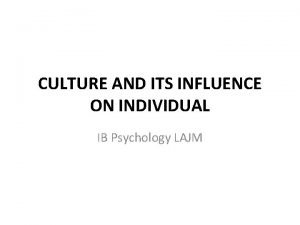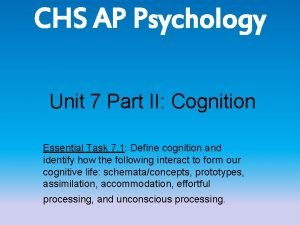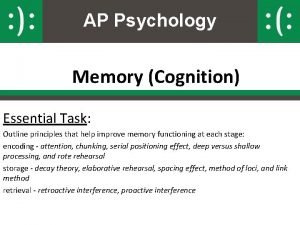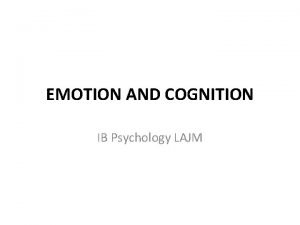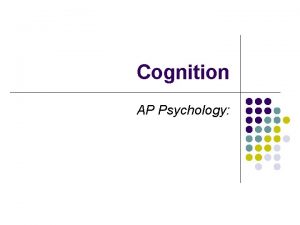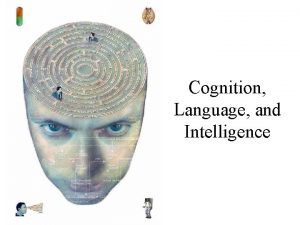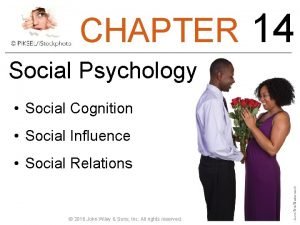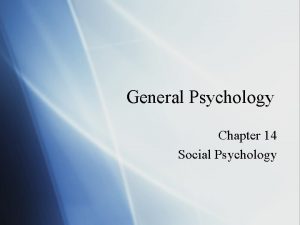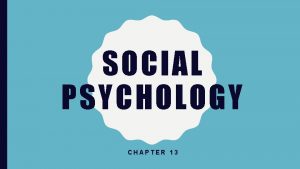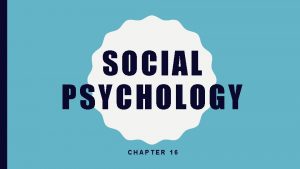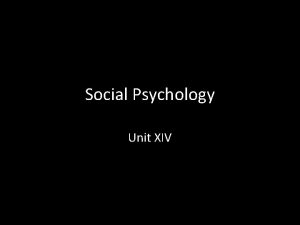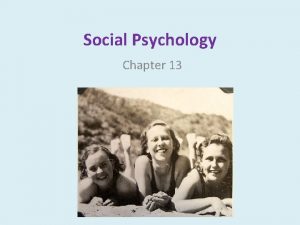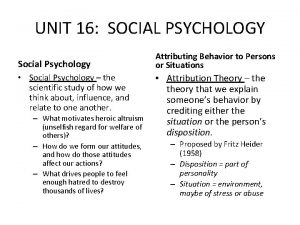SOCIAL PSYCHOLOGY Social Cognition Liking Helping Agenda Group













- Slides: 13

SOCIAL PSYCHOLOGY Social Cognition, Liking, Helping

Agenda Group Presentation Reminder Begin in one week. Does everyone have a rubric? Obedience Activity/Study Social Cognition

Obedience A change in behavior in response to the commands of others Milgram Obedience Studies “Learning” Study Ethical Implications Factors that effect obedience Personality Immediacy Authority/Legitimacy Behavior of others

Study

Social Cognition Cognitive processes by which people understand make sense of others and themselves Wide range. Think of a regular day at school. How much energy you devote to understanding each individual you encounter? Largely automatic. Rely on schemas.

Impression Formation Process of forming an overall impression of someone or some group. How quickly do you think this takes? How do you think this process occurs? Mathematical Approach Group Categorization Approach (Module 43) Schemas in First Impressions Schema for a physical group Arab, Woman, Monk, etc. Schema for a personality type “Nice guy, ” “Good student, ” etc.

Impression Formation Central Traits considered important when forming impressions Cold – Warm Competent - Incompetent Attractiveness Beautiful = Good Rated higher on almost everything Exceptions: Trust and Honesty Often are better Expectancy Effects



Attributions How people interpret the causes of others’ and their own behavior/outcomes Why were you late for class? Traffic, Last Class Let Out Late Situational causes Perceived causes based on environmental causes. You’re lazy, You don’t pay attention Dispositional causes Perceived causes based on internal factors


Attribution Errors The Fundamental Attribution Error Overestimate dispositional causes in other people. Why? The Self-Serving Bias You get an A on a test. Dispositional You Attribution. get a D on a test. Situational Why? Attribution.

Liking (Module 46) What predicts attraction? Attractiveness Very important in initial attraction. Proximity Closeness Familiarity Repeated leads to liking. – Mere Exposure exposures lead to increased liking. People and objects. Similarity More similarity? More liking. Reciprocity of liking effect
 Liking begets liking
Liking begets liking List of 23 helping verbs
List of 23 helping verbs Liking scale 1-5
Liking scale 1-5 I am liking it very much
I am liking it very much Haemophilus
Haemophilus Romeo and juliet act v continued
Romeo and juliet act v continued Alliteration examples in romeo and juliet
Alliteration examples in romeo and juliet Acculturation ib psychology
Acculturation ib psychology Cognition definition ap psychology
Cognition definition ap psychology Embodied cognition ap psychology
Embodied cognition ap psychology Cognition ap psych definition
Cognition ap psych definition Teacup ib psychology
Teacup ib psychology Unlike b. f. skinner, noam chomsky believes that children
Unlike b. f. skinner, noam chomsky believes that children Embodied cognition ap psychology
Embodied cognition ap psychology
